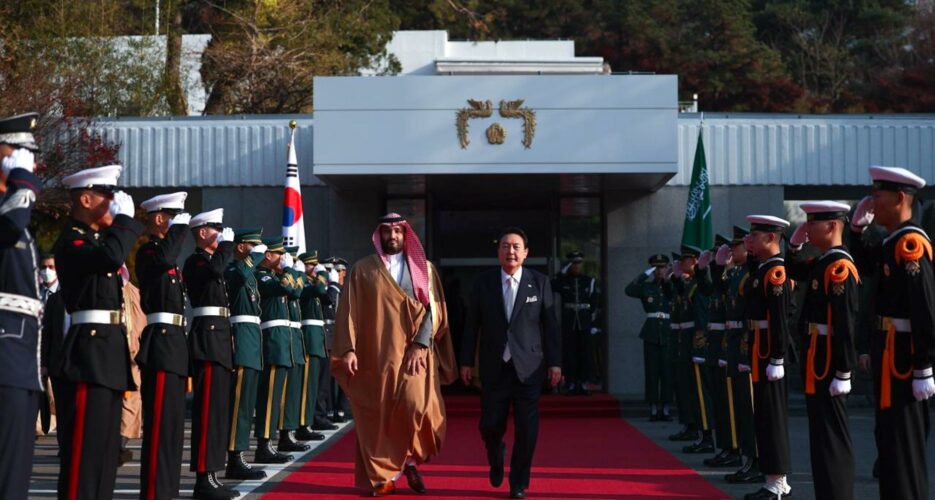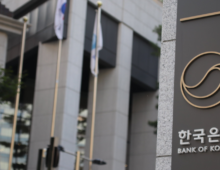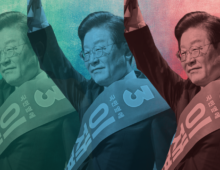Yoon has shown few qualms about economic cooperation with Middle Eastern state despite seeking to boost human rights
For South Korean government officials and businesses, Saudi Crown Prince Mohammed bin Salman’s visit last week was like an early Christmas — and not simply because he booked 400 rooms at Lotte Hotel Seoul for two weeks for his entourage, including a $16,449-per-night suite for himself.
The visit marked bin Salman’s first to South Korea since 2019, and President Yoon Suk-yeol’s top priority was to seek greater cooperation between Seoul and Riyadh, including Saudia Arabia’s futuristic $500 billion desert city megaproject Neom.
For South Korean government officials and businesses, Saudi Crown Prince Mohammed bin Salman’s visit last week was like an early Christmas — and not simply because he booked 400 rooms at Lotte Hotel Seoul for two weeks for his entourage, including a $16,449-per-night suite for himself.
The visit marked bin Salman’s first to South Korea since 2019, and President Yoon Suk-yeol’s top priority was to seek greater cooperation between Seoul and Riyadh, including Saudia Arabia’s futuristic $500 billion desert city megaproject Neom.
Get your
KoreaPro
subscription today!
Unlock article access by becoming a KOREA PRO member today!
Unlock your access
to all our features.
Standard Annual plan includes:
-
Receive full archive access, full suite of newsletter products
-
Month in Review via email and the KOREA PRO website
-
Exclusive invites and priority access to member events
-
One year of access to NK News and NK News podcast
There are three plans available:
Lite, Standard and
Premium.
Explore which would be
the best one for you.
Explore membership options
© Korea Risk Group. All rights reserved.
No part of this content may be reproduced, distributed, or used for
commercial purposes without prior written permission from Korea Risk
Group.












